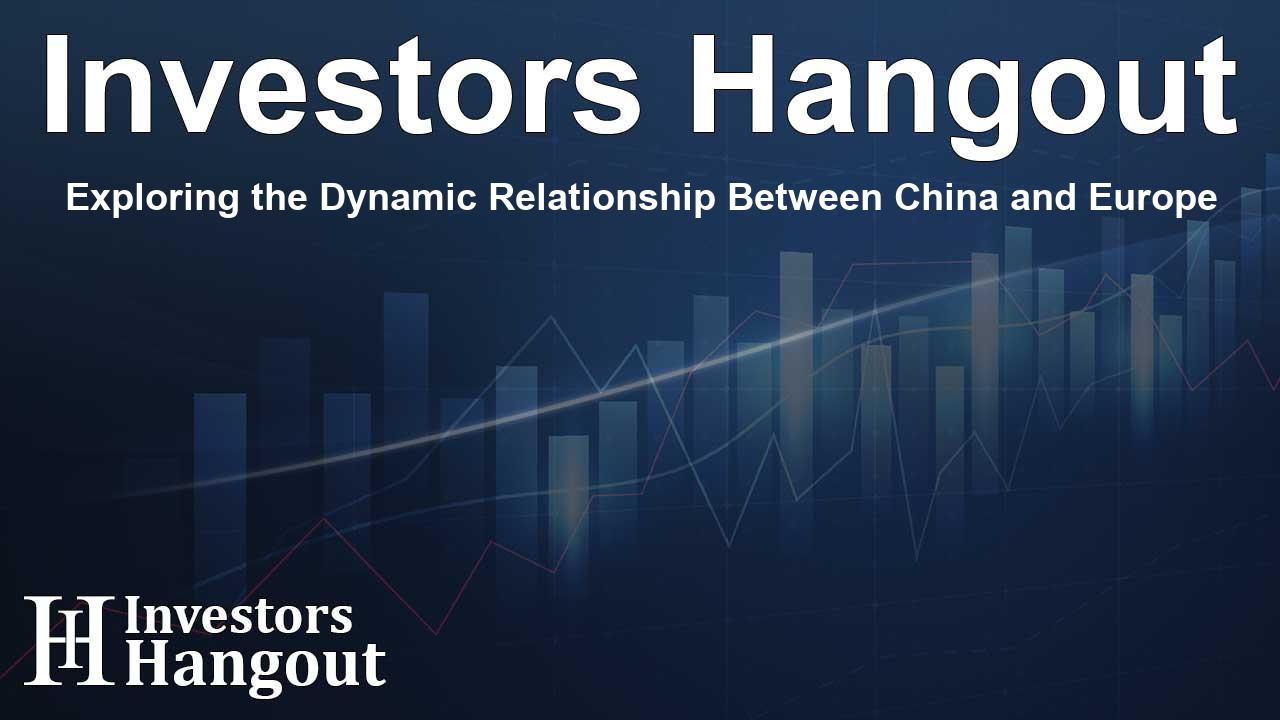Exploring the Dynamic Relationship Between China and Europe

The Significance of Understanding China in Today’s World
In the context of global relations, understanding China has emerged as a significant need for the world, particularly for Europe. As recent discussions highlighted, the challenges and opportunities from this understanding play a crucial role in garnering mutual cooperation. Maria João Rodrigues, the president of the Foundation for European Progressive Studies, emphasized the importance of recognizing China’s transformation over the years, especially since her initial visit in the late 1990s. Observing the journey China has taken in innovation and social progress has been nothing short of remarkable.
China’s Remarkable Development Journey
China has presented a case study in rapid development and transformation. The country has shown significant progress in overcoming poverty and enhancing the living standards of its citizens. This journey, marked by a blend of innovation and social inclusion, elevates China as a noteworthy example in international development. The dual focus on advancing technology and ensuring inclusivity demonstrates how a large nation can positively impact its populace at scale.
Partnering for Global Governance
The relationship between China and Europe extends beyond mere competition; it presents a partnership opportunity aimed at tackling global challenges. Rodrigues pointed out that both regions have tremendous potential when they unite their resources. Together, they can effectively address important issues like climate change and sustainable development. By pooling together financial resources and technology, China and Europe have the potential to support developing nations in achieving their goals.
Shifts in European Understanding of China
As the dynamics of international relations evolve, it’s essential to analyze the shifting attitudes in Europe towards China. There is a noticeable curiosity and admiration towards China's rich history as an ancient civilization comparable to Europe's own. In recent years, while many citizens have enjoyed the benefits of imports from China, there remains a sense of impending pressure on certain European sectors due to China’s rising competitiveness.
Trade Surplus and Its Implications
The growing trade surplus that China holds over Europe has become a significant topic of concern among European authorities. The desire for a balanced trade relationship suggests a need for dialogue and cooperation to address these concerns constructively. European officials are pushing for collaborative strategies to reduce the trade imbalance while still upholding open trade channels.
Electric Vehicle Dispute and Potential Solutions
The recent EU decision to impose tariffs of up to 45.3% on Chinese-made electric vehicles has sparked significant discussion about the future of this market. The underlying issue lies in China's aggressive play in the EV segment, producing affordable options for consumers. Meanwhile, Europe is still catching up in producing competitive, lower-cost vehicles.
Industrial Plans for a Competitive Edge
Rodrigues highlighted that for Europe to remain competitive in this space, an updated industrial strategy focused on developing electric vehicles for middle-class consumers is essential. This plan would enable European manufacturers to better compete with their Chinese counterparts, facilitating natural competition in an open market. A successful implementation of this strategy could pave the way for healthier relations between the two economies.
The Future of China-Europe Relations
Looking to the horizon, the evolving relationship between China and Europe will, in part, depend on ongoing discussions and strategic efforts in the EU. A focus on maintaining open trading relations while addressing imbalance will be key to fostering a positive environment. The EU's decisions should be self-defined, ensuring that their assessment criteria strengthen the importance of collaboration with China to confront global challenges.
Frequently Asked Questions
What is the significance of the China-Europe relationship?
The China-Europe relationship is crucial for addressing global challenges through mutual cooperation on issues like climate change and sustainable development.
How has China transformed over the years?
China has made significant advancements in reducing poverty and improving living standards, showcasing a model of rapid development and innovation.
Why is there concern over trade imbalances between China and Europe?
The trade surplus that China has over Europe raises concerns about competitiveness, prompting calls for cooperative dialogue to address these imbalances.
What steps is Europe taking in the EV market?
Europe is discussing the development of an industrial plan to produce affordable electric vehicles to better compete with China's offerings in this sector.
How does the EU define its relationship with China?
The EU aims to maintain a balanced relationship with China based on cooperation, openness, and shared goals, ensuring that its strategic interests are met.
About The Author
Contact Thomas Cooper privately here. Or send an email with ATTN: Thomas Cooper as the subject to contact@investorshangout.com.
About Investors Hangout
Investors Hangout is a leading online stock forum for financial discussion and learning, offering a wide range of free tools and resources. It draws in traders of all levels, who exchange market knowledge, investigate trading tactics, and keep an eye on industry developments in real time. Featuring financial articles, stock message boards, quotes, charts, company profiles, and live news updates. Through cooperative learning and a wealth of informational resources, it helps users from novices creating their first portfolios to experts honing their techniques. Join Investors Hangout today: https://investorshangout.com/
The content of this article is based on factual, publicly available information and does not represent legal, financial, or investment advice. Investors Hangout does not offer financial advice, and the author is not a licensed financial advisor. Consult a qualified advisor before making any financial or investment decisions based on this article. This article should not be considered advice to purchase, sell, or hold any securities or other investments. If any of the material provided here is inaccurate, please contact us for corrections.
